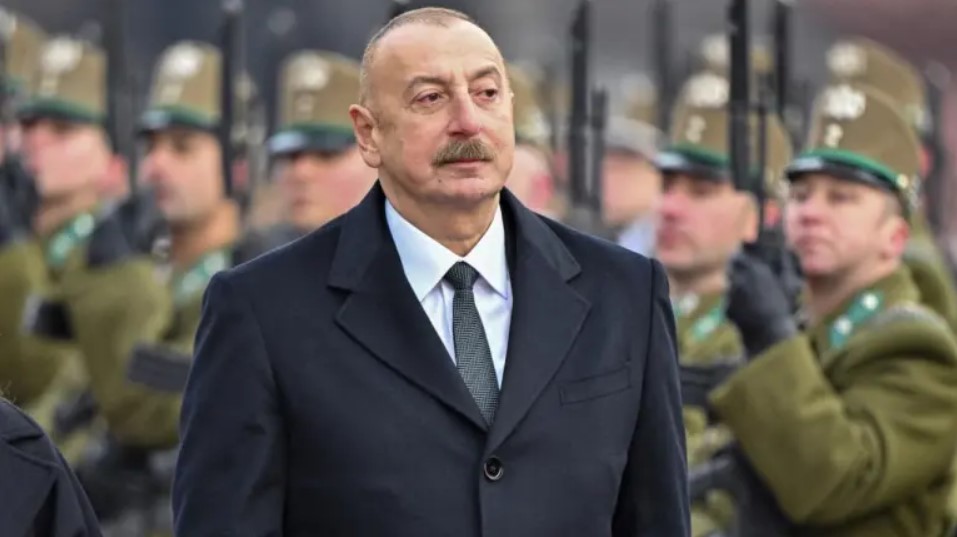Russian propaganda has deployed a scheme against Azerbaijan similar to the one used before the full-scale invasion of Ukraine, according to specialists from the Robert Lansing Institute (RLI).
According to their assessment, the Kremlin is trying to delegitimize Baku’s sovereignty, portray the country as a Western proxy, accuse it of Russophobia, and exaggerate threats to prepare the ground for covert aggression.
The tension escalated after Azerbaijani President Ilham Aliyev’s August statement that Azerbaijan “must always be ready for war.” This was made in Kelbajar (Karabakh) alongside demonstrations of new special forces, commando units, and modernized aircraft. In an interview with Al Arabiya, Aliyev also described the 1920 Soviet takeover as “occupation,” sparking heavy criticism from Russian media. Additionally, Baku accused Moscow of strikes on SOCAR oil facilities in Odessa in August 2025, which is also seen as a signal of possible Russian aggression.

Pro-Kremlin media actively portray Azerbaijan as “Russophobic,” “sold out to the West,” and a tool of Pan-Turkism or Israel. Kremlin outlets accuse Baku of rewriting history and threaten retaliatory measures. In response, Azerbaijan has documented the spread of fake and deepfake content aimed at damaging relations with Moscow.
Azerbaijan is supported by Turkey, Pakistan, and Israel, providing security guarantees, defense cooperation, and weapons and intelligence supplies. Energy ties with the EU also give Baku strategic leverage.
RLI highlights several potential escalation scenarios. The most likely is a “gray zone” scenario: information campaigns, media raids, visa restrictions, pressure on SOCAR’s energy assets outside the Caucasus, cyber operations, and electronic warfare harassment. Moderate probability exists for border clashes with Armenia, especially in Syunik and Zangezur. Direct military confrontation between Russia and Azerbaijan is unlikely due to the presence of allies and Moscow’s constraints, although incidents at sea and in the Caspian region remain possible.
Experts note that Russian propaganda against Azerbaijan mirrors key tactics used against Ukraine before 2022: delegitimizing the state, accusing it of Russophobia, positioning it as a Western or foreign proxy, alleging historical revisionism, inflating threats, and framing it as betrayal. The main difference is that Baku has strong security guarantees from Turkey, support from Israel and Pakistan, and EU energy leverage, reducing the risk of a direct invasion.
Nevertheless, the propaganda campaign indicates Moscow’s preparation for covert escalation: strikes on energy infrastructure, cyber operations, information attacks, and diplomatic pressure, while open war remains unlikely.



















